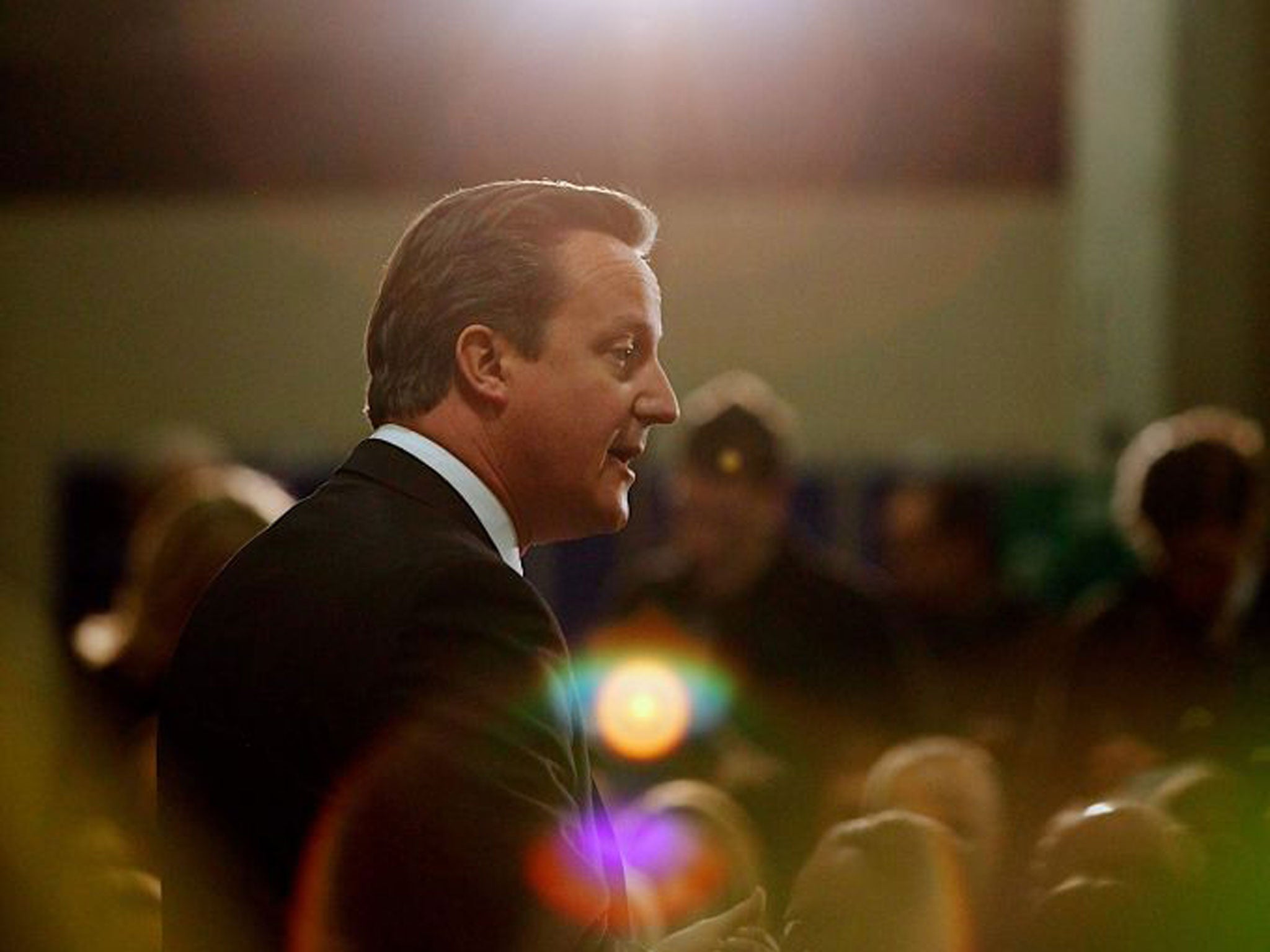As ever, Tony Blair is David Cameron's guide
The credit-rating downgrade and Ukip's success in Eastleigh could have resulted in the PM changing course. He has rightly not done so


The phrase of last week was "redoubling our efforts". It was what George Osborne, the Chancellor, promised to do on Monday, after the country's credit rating was downgraded. It was what Grant Shapps, the Conservative chairman, promised to do on Friday, after the party came third behind Ukip in the Eastleigh by-election.
It is easy to mock, and to suggest that persisting with a failed economic policy and with a failed political message is the Lord Melchett strategy. He it was who, in Blackadder Goes Forth, said that going over the top and charging the German lines was precisely what had failed before and therefore what the enemy would be least expecting.
In fact, "redoubling our efforts" is the right response to both setbacks. Changing course on the economy, or on policy generally, would be a mistake. Osborne is not going to say to Ed Balls: "Now you mention it, your neo-Keynesian economist friends have a point, so I'll borrow more over the next two years in the hope of stimulating growth that will cut borrowing in the long run." It is hard enough for Labour to argue that case for itself, let alone for Osborne to do so.
Nor is David Cameron going to replace him as Chancellor with Philip Hammond or anyone else. On this, I admit that my judgement has been faulty. Because of the Blair-Brown years, I had become used to assuming that 10 and 11 Downing Street must be at war, and I assumed that a certain reserve must have poisoned the air between Cameron and Osborne.
Yet everything I hear of how this government works convinces me that the relationship is genuinely close. Osborne has learnt the right lesson from the Blair-Brown struggle, which is that Brown could have been prime minister earlier if he had been supportive. Cameron trusts Osborne and consults him on all important decisions.
The two of them will, therefore, persist with what Labour has successfully labelled "austerity" economics, even though Ed Balls would be only marginally less austere in practice.
They will also hold their course in response to the embarrassment of the Eastleigh by-election. Nigel Farage combined wit with acute analysis in his victory lap on Friday. He said that the Tories, having been the party of business and the free market, had become the party of gay marriage and windmills.
He knows his target market well. They are disaffected Tory activists, fed up with what they regard as Cameron's fashionable political correctness. Liberal journalists in London have little idea of the efficiency with which the Marriage (Same Sex Couples) Bill is destroying the Tory party's base. Cameron, on the other hand, is all too aware how unpopular he is with the sort of traditional Tory who complains, as one prime ministerial aide mimicked it, "I hardly recognise the country I live in any more."
The most surprising thing about the response to Eastleigh, however, is how few people are urging the Prime Minister to change course to appease such sentiments. No Conservative MP of consequence has demanded that Cameron should become more like Farage. The BBC Radio 4 PM programme was reduced on Friday to interviewing a reporter about how she had failed to persuade any of Cameron's backbench critics to go on the record. They complain privately that Cameron is "not a real Conservative", but they know that this is a mirror image of the Labour complaint that Blair was "really a Tory" – a whine about a three-time election winner that was less than wounding. Cameron's problem is that he has so far been less successful than Blair, not that his strategy is wrong.
Hence Cameron's good sense in declaring this weekend that the battleground is on "the common ground of British politics" and that that's where he intends to fight. The "common ground" phrase is an attempt to soften the abrasive implication, for Tory traditionalists, of the "centre ground", and Cameron's people point out that it includes his dedication to the supposedly left-wing cause of the NHS as well as to the supposedly right-wing causes of restricting immigration and capping welfare benefits. But it sounds like the Blairite centre ground to me.
This means Cameron has held his nerve, accepting the continuing loss of party members for the chance of electability next time.
Hence the paradox of Eastleigh. It looked like a stunning success for Ukip but it was a grand failure. If Ukip had won the seat, Cameron might have had a terminal problem. But, despite Farage cheeking his establishment rivals, his party attracted just 28 per cent of the vote. If Ukip cannot win a protest by-election in Hampshire, with the coalition parties splitting their vote, and the economy becalmed, it is unlikely that it can win anywhere.
Lord Ashcroft's post-election opinion poll confirmed that many Ukip voters in Eastleigh would return to the Tories in a general election – not least because they greatly prefer Cameron as prime minister to Ed Miliband.
The important thing about "redoubling efforts" is that it is quite different from "changing course". When Cameron says he will fight on the "common ground", he means he will do the brave and right thing of ignoring the foolish advice to be "more Tory".
Cameron's judgement has not always been reliable, but now he is being tested and has not been found wanting.

Join our commenting forum
Join thought-provoking conversations, follow other Independent readers and see their replies